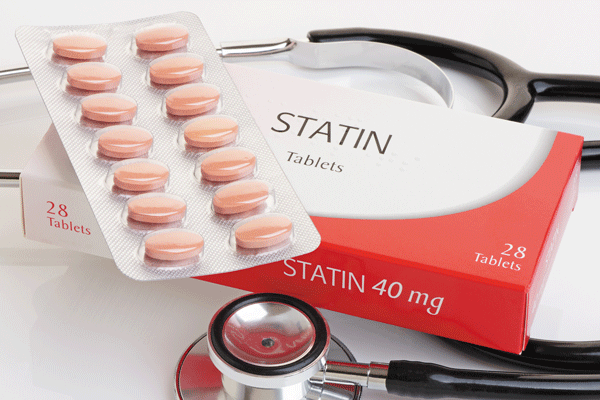
Respiratory health harms often follow flooding: Taking these steps can help

Tips to leverage neuroplasticity to maintain cognitive fitness as you age

Can white noise really help you sleep better?

Celiac disease: Exploring four myths

What is prostatitis and how is it treated?

What is Cushing syndrome?

Exercises to relieve joint pain

Think your child has ADHD? What your pediatrician can do

Foam roller: Could you benefit from this massage tool?

Stepping up activity if winter slowed you down
Heart Health Archive
Articles
The benefits of positive thinking after a heart attack
Image: Thinkstock
A heart attack or unstable angina (sudden chest pain that happens at rest) usually requires a hospital stay. After such events—which doctors call acute coronary syndromes—about one in five people ends up back in the hospital with heart disease or dies in the following year. But there's a bright side: new research suggests that survivors with an optimistic attitude are less likely to be readmitted to the hospital with heart problems.
The study, published in the January 2016 Circulation: Cardiovascular Quality and Outcomes, included 164 people, mostly men, who were hospitalized for acute coronary syndromes. Two weeks after the event, they filled out questionnaires designed to measure their sense of optimism and gratitude.
Put your heart in the right place
Cardiac rehabilitation can speed recovery from heart-related surgery and lower the risk of heart attack and stroke.
Image: Canstock
Cardiac rehab programs are designed for patients who have recovered from a recent heart attack or heart failure, or who have undergone surgery for a heart valve, coronary artery bypass, pacemaker, or stent. They are also helpful for people diagnosed as having a high risk for cardiovascular disease.
"Patients often do well in the programs, and they definitely can improve recovery and future heart health," says Dr. Pradeep Natarajan, a cardiologist with Harvard-affiliated Massachusetts General Hospital. "Yet, many providers don't offer rehab, and most patients don't know about it."
Straight talk about oral health
Healthy teeth and gums can protect against tooth loss, gum disease, and even heart disease.
Image: Thinkstock
If you want a snapshot of your current and future health, then open wide. "The condition of your teeth and gums can often show warning signs of serious issues, from potential tooth loss to possible cardiovascular disease and cancer," says Dr. Lisa Simon, instructor in oral health policy and epidemiology at the Harvard School of Dental Medicine.
Tooth decay and gum disease
The main issue with oral health is tooth decay, which strikes 90% of all adults, and gum disease, which affects approximately 40% of those ages 65 or older, says the Academy of Nutrition and Dietetics. Gum disease—infection of the gums and surrounding tissues—develops when plaque, a sticky film of bacteria, builds up along and under the gum line.
Men's hearts age differently from women's
Here is one more way men and women are different: research published online Oct. 20, 2015 in Radiology found that male and female hearts do not age the same way.
For the study, researchers reviewed MRI heart scans performed on almost 3,000 older adults, ages 54 to 94, without existing heart disease. (Scans were given 10 years apart.) The scans showed that in both sexes, the main heart chamber—the left ventricle, which fills with and then forces out blood—gets smaller with time. As a result, less blood enters the heart, and less gets pumped out to the rest of the body.
Why you may need a statin
Although risk calculators disagree, at some point age becomes the deciding factor in the decision to take a cholesterol-lowering medication.
Image: Thinkstock
If you've been diligent about monitoring your risk factors for developing heart disease, you may have realized that online calculators can be helpful. If you have the results from your latest cholesterol test, these online calculators can compute your chance of having a heart attack or stroke in the next decade:
Framingham Risk Calculator http://cvdrisk.nhlbi.nih.gov
ACC/AHA Heart Risk Calculator www.cvriskcalculator.com
Reynolds Risk Score www.reynoldsriskscore.org
However, each may give you a slightly different number. And while the Framingham calculator might indicate that your risk is low and therefore you don't need a cholesterol-lowering statin drug, the ACC/AHA calculator could indicate that you should be taking a statin to reduce your risk.
Atrial fibrillation carries a greater risk of stroke and death for women
Men are more likely than women to develop atrial fibrillation (afib)—a rapid, erratic beat in which the heart's upper chamber doesn't contract forcefully, allowing blood to pool and increasing the risk of clotting. However, some—but not all—studies have indicated that afib poses a greater stroke risk in women than in men. To settle the question, an international team of researchers looked at 30 studies with 4.4 million participants. They found that compared with men who have afib, women with afib have a 12% higher risk of death from all causes and almost double the risk of having a stroke or dying from one. The results were published online Jan. 20, 2016, by the journal BMJ.
Women notoriously neglect the symptoms of afib—feeling weak, breathless, or unusually fatigued. If you have afib symptoms, get medical attention, even if you think it's only a virus. There are several successful treatments for afib as well as for preventing stroke in women who have afib.
Heart attack and stroke risk may rise briefly after a bout of shingles
A painful, blistering rash known as shingles may temporarily increase a person's risk of a stroke or heart attack, according to a study in the Dec. 15, 2015 PLOS Medicine. Also known as herpes zoster, shingles results from a reactivation of the virus that causes chickenpox, which most adults had during childhood.
For the study, researchers analyzed the records of more than 67,000 people ages 65 and older diagnosed with shingles and either a heart attack or stroke from 2006 through 2011. They then compared the rates of cardiovascular events before and after a shingles attack. In the first week after a shingles diagnosis, the risk of a stroke rose 2.4 times and the risk of a heart attack increased 1.7 times compared with baseline risk.
How much exercise is optimal for heart health?
Doing as little as 15 minutes a day can make a difference. Logging extra time helps—but only up to a point.
Regular exercise helps fend off high blood pressure, heart attacks, strokes, and a host of other chronic diseases. Despite these well-publicized benefits, most Americans aren't physically active on a daily basis. One reason may be a mistaken belief that exercise requires heart-pounding exertion and sweat. While that level of effort makes sense if you're training for a race or other athletic event, it's simply not necessary if your main concern is staying healthy.
"Unfortunately, most people have blurred the distinction between exercising for health and well-being and exercising for fitness in an athletic, competitive sense," says Dr. Harvey Simon, associate professor of medicine at Harvard-affiliated Massachusetts General Hospital. "The truth is that if you're exercising for health, it takes very little effort to see enormous benefits," he says.
Ask the doctor: What is a myocardial bridge?
Ask the doctor
Q. After some recent heart tests, my doctor said everything looked fine. But the report he sent me mentions a myocardial bridge. Should I be concerned?
A. In this condition, which is usually thought to be harmless, a segment of one of the heart's main arteries tunnels into the heart muscle and back out again instead of resting on the surface of the heart. The bridge refers to the band of heart muscle (myocardium) that stretches over that section of the artery.

Respiratory health harms often follow flooding: Taking these steps can help

Tips to leverage neuroplasticity to maintain cognitive fitness as you age

Can white noise really help you sleep better?

Celiac disease: Exploring four myths

What is prostatitis and how is it treated?

What is Cushing syndrome?

Exercises to relieve joint pain

Think your child has ADHD? What your pediatrician can do

Foam roller: Could you benefit from this massage tool?

Stepping up activity if winter slowed you down
Free Healthbeat Signup
Get the latest in health news delivered to your inbox!
Sign Up








